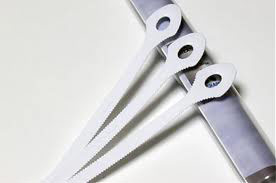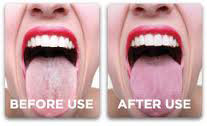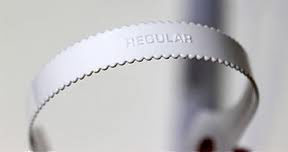How to Fix and Prevent Bread Breath
October 16th, 2014
 You may have the straightest, most beautiful, and gleaming white teeth, but that doesn’t mean your mouth smells nice. If you take care of your teeth, you might still have bad breath. However don’t be surprised if bad oral hygiene coincides with bad breath. Either way, horrible-smelling breath is a major concern for anyone who wants to make a good impression on someone, or just wants to hold a conversation.
You may have the straightest, most beautiful, and gleaming white teeth, but that doesn’t mean your mouth smells nice. If you take care of your teeth, you might still have bad breath. However don’t be surprised if bad oral hygiene coincides with bad breath. Either way, horrible-smelling breath is a major concern for anyone who wants to make a good impression on someone, or just wants to hold a conversation.
To combat bad breath, you first need to know what causes it, and then how to fight it. There are many reasons that bad breath can occur. First, there are the natural ways that unfortunately occur from eating garlic or onions. This kind of bad breath comes from the stomach and the bloodstream, travels to your lungs, and reappears on your breath. Other causes of bad breath include using tobacco products, having a dry mouth, and having bad oral hygiene.
The main cause, however, comes from bacteria that is living on the back of your tongue. This is why most men and women have bad breath. The bacteria, known as volatile sulfur compounds, live far back on the tongue where a toothbrush cannot reach. This is why many people who may have great looking teeth can also experience bad breath.
So what’s the solution to the problem of reaching far back on the tongue and combating that terrible smelling bacteria? There’s a few things you can do.
Ways You Can Prevent Bad Breath in Your Bathroom
Brush and Floss
While your toothbrush and floss can’t reach the back of your tongue, a big reason that far away bacteria is able to survive is because of the sugars, acids, and other bacteria than live in between your teeth and the pockets of your gums. The cleaner your mouth is from brushing and flossing, the harder it is for the volatile sulfur compounds to survive.
Use A Mouthwash with Chlorine Dioxide
Swish the mouthwash around in your mouth and gargle with your tongue sticking out. Make sure that the mouthwash reaches as far back in your mouth as possible without you swallowing it. Most mouthwashes will combat and kill bacteria, however chlorine dioxide is known to be especially effective at washing away those pesky bad-breath-causing bacterias.
Use a Tongue Scraper
We’ve praised the tongue scraper a few times on our blog, and that is because it’s truly effective. A lot of the bacteria that grows on the tongue can actually be seen if you stick your tongue far out. It will look like a milky white film. Gross, right? While brushing your tongue can loosen some of this bacteria, a tongue scraper is specifically designed to pull off the bacteria on the back of the tongue. Use your fingers to pull your tongue out as far as possible to make sure to remove the bacteria from the farthest reaches of your tongue. Make sure to rinse the tongue scraper after each use as well, so that you don’t allow the bacteria to return to where it was.
When it comes to a routine to help you keep your breath fresh and tongue bacteria-free, we recommend first using mouthwash, then the tongue scraper, brushing and flossing, and finally, if you’re really working hard to kick that bad breath, use mouthwash once more.
Tips for Preventing Bad Breath When You’re Out of the House
When you’re not in front of a sink working on correcting your bad breath, and you’re out of the house, here are a few tips to keep your breath in check.
Drink a lot of Water
A great defense for bad breath is flushing out particles, acids, and bacterias from your mouth by drinking lots of water, especially with meals or after drinking a darker liquid (coffee, tea, cola, etc.).
Chew on Herbs
That little green piece of grass on your plate at lunch? That’s actually parsley, and it’s great for neutralizing bad smells in your mouth. Mint is another effective herb to have around and take a bite out of. You’ll be surprised how fresh your mouth can feel and smell after eating it.
Chew Gum with Xylitol
Similar to fresh herbs, gum with xylitol can help fight bacteria and keep your breath fresh. We advise avoiding gum or mints that contain a lot of sugar, because while they may work for a little bit, they also harm your teeth and don’t really combat the problem of bad breath. Instead, they temporarily cover it up.
If you follow these tips, you should have fresh breath everyday. If you are still experiencing bad breath after following all of these suggestions, you may be experiencing a larger issue, such as a dead tooth or a medical condition you’re unaware of. If so, contact Water Tower Dental. We can help you develop a routine for fresh breath and a healthy smile that’s right for you.

 When it comes to oral hygiene, Water Tower Dental encourages daily brushing and flossing along with biannual dental cleanings and check ups. Clearing harmful bacteria out of the mouth will help keep your teeth and gums clean and healthy, but what about your breath? Although brushing a flossing can help keep the bacteria that cause bad breath away from your teeth and gums, there's still a chance you'll have bad breath. That's because many of the bacteria can camp out on your tongue. Cue the tongue scraper, a leading tool in keeping harmful bacteria off your tongue.
When it comes to oral hygiene, Water Tower Dental encourages daily brushing and flossing along with biannual dental cleanings and check ups. Clearing harmful bacteria out of the mouth will help keep your teeth and gums clean and healthy, but what about your breath? Although brushing a flossing can help keep the bacteria that cause bad breath away from your teeth and gums, there's still a chance you'll have bad breath. That's because many of the bacteria can camp out on your tongue. Cue the tongue scraper, a leading tool in keeping harmful bacteria off your tongue. There are several different designs of a tongue scraper (also referred to as a tongue brush or tongue cleaner), but their objective is still the same. Tongue cleaners- unlike toothbrushes- are designed for the purpose of lifting and trapping the plaque coating and removing it from the tongue.
There are several different designs of a tongue scraper (also referred to as a tongue brush or tongue cleaner), but their objective is still the same. Tongue cleaners- unlike toothbrushes- are designed for the purpose of lifting and trapping the plaque coating and removing it from the tongue. A tongue scraper will not just help your bad breath though. A tongue scraper helps remove ama from the tongue. Ama is sanskrit meaning anything that is undigested. Specifically for your mouth, undigested food. Old remnants of food, just like plaque, can build up along the tongue. The more build up you have, however, the less your taste buds can detect flavors of food. By using a tongue scraper, you can actually help your tongue taste food better. That's a great plus for anyone who loves a good meal.
A tongue scraper will not just help your bad breath though. A tongue scraper helps remove ama from the tongue. Ama is sanskrit meaning anything that is undigested. Specifically for your mouth, undigested food. Old remnants of food, just like plaque, can build up along the tongue. The more build up you have, however, the less your taste buds can detect flavors of food. By using a tongue scraper, you can actually help your tongue taste food better. That's a great plus for anyone who loves a good meal.




 Website Powered by Sesame 24-7™
Website Powered by Sesame 24-7™